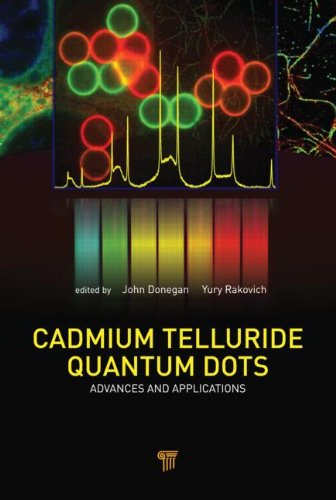

Most ebook files are in PDF format, so you can easily read them using various software such as Foxit Reader or directly on the Google Chrome browser.
Some ebook files are released by publishers in other formats such as .awz, .mobi, .epub, .fb2, etc. You may need to install specific software to read these formats on mobile/PC, such as Calibre.
Please read the tutorial at this link: https://ebookbell.com/faq
We offer FREE conversion to the popular formats you request; however, this may take some time. Therefore, right after payment, please email us, and we will try to provide the service as quickly as possible.
For some exceptional file formats or broken links (if any), please refrain from opening any disputes. Instead, email us first, and we will try to assist within a maximum of 6 hours.
EbookBell Team

4.7
56 reviewsIn the last two decades, semiconductor quantum dots—small colloidal nanoparticles—have garnered a great deal of scientific interest because of their unique properties. Among nanomaterials, CdTe holds special technological importance as the only known II–VI material that can form conventional p–n junctions. This makes CdTe very important for the development of novel optoelectronic devices such as light-emitting diodes, solar cells, and lasers. Moreover, the demand for water-compatible light emitters and the most common biological buffers give CdTe quantum dots fields a veritable edge in biolabeling and bioimaging.
Cadmium Telluride Quantum Dots: Advances and Applications focuses on CdTe quantum dots and addresses their synthesis, assembly, optical properties, and applications in biology and medicine. It makes for a very informative reading for anyone involved in nanotechnology and will also benefit those scientists who are looking for a comprehensive account on the current state of quantum dot–related research.